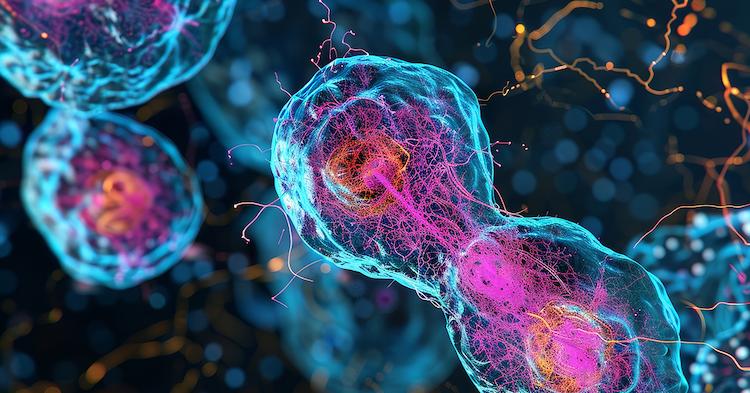
By Amy Raymond, PhD, PMP, Executive Director, Therapeutic Strategy Lead, Rare Disease
Cell and gene therapies (CGTs) include cutting-edge approaches that offer the hope of a healthier, happier, and better tomorrow for a wide range of patient populations. CGTs address rare and complex diseases at the root cause with increasing use in cancer, genetic disorders, and autoimmune diseases. Cell therapy, specifically, is changing our narrative around chronic and lethal conditions. For example, once considered incurable and terminal, patients with sickle cell disease may reach new summits in their lives with gene editing technologies such as CRISPR to repair affected DNA and, in some cases, functionally cure the condition. Patients with previously terminal cancer diagnoses are experiencing renewed hope from cellular immunotherapies, including but not limited to adoptive cell therapies such as CAR T, to target and eliminate the cancerous threat.
These advanced therapeutics harness the power of molecular biology to improve human health. Despite their exciting potential, the smooth operation of cell therapy development trials requires extraordinary orchestration, perfectly aligning the product and patient journeys. While clinical supply is essential to any successful trial, autologous cell therapy trials occupy the far end of the spectrum regarding risk tolerance.
The process, from patient coordination through manufacturing and administration, is intricate, time-sensitive, and highly regulated. Operationalizing these trials requires proactive and flawless management at every stage. Below, we discuss some of these challenges in cell therapy trials.
Understanding Cell Therapy
Coordination and manufacture of living IP can be as complex as it is rewarding. At a high level, the process involves:
- Collecting cells from the patient (autologous) or processing healthy donor cells (allogeneic).
- Modifying and expanding the cells in a GMP laboratory.
- Delivering this cellular drug product into the patient’s body, followed by intensive medical oversight.
There are also nuances for operational planning in cell therapy development programs. For example, autologous cell therapy products require strict documentation of the chain of identity throughout the cell journey to ensure each patient receives drug product made only from their cells, in addition to the rigorous chain of condition and chain of custody documentation standard to both allogeneic and autologous interventions. While many market-approved cell therapies available today are autologous products, allogeneic interventions are growing more common. Cell therapy can be effective, but clinically testing the treatment presents several logistical challenges that require early planning and rigorous management by specialized and experienced teams throughout the clinical trial timeline.
Key Logistical Challenges
Cell therapy clinical logistics encompasses everything from coordinating patient visits at the investigational clinic to safe and reliable shipping of precious materials to and from manufacturing, in addition to scheduling treatment delivery and access to in-patient resources in some cases. While allogeneic product development necessarily involves less transport, the low tolerance for risk and the need for diligent planning and oversight remain the same. The associated complexity of shipping living cells requires multiple predetermined risk mitigation strategies that consider the probability of a given error and the related trial impact at every step to avoid delays, any of which could compromise the trial timelines, patient welfare, and study budget.
Patient Coordination & Scheduling
Coordinating patients’ schedules, production timelines, and multiple specialized experts at the investigational site is imperative for cell therapy trials to remain on track. When faced with narrow windows for collecting, modifying, and delivering cells back to the patient, the clock is always ticking. Any delays in shipping or manufacturing can jeopardize the therapy, making precise planning, scheduling, and oversight essential.
Cold Chain Logistics
Transporting sensitive biological materials such as living cells presents another significant challenge, as these materials require strict temperature controls and careful transport within narrow, pre-defined windows to stay viable. Failure to adhere to thoughtfully planned logistics can jeopardize the patient’s opportunity to receive potentially transformative therapy. This can be a devastating outcome when trying again just isn’t possible.
The global nature of cell and gene therapy trials adds another layer of complexity. Transporting therapies across continents requires handling sensitive materials in different climatic and time zones, making logistics even more challenging. Thus, selecting a CRO with global experience managing cell therapy clinical logistics is critical.
Selecting the Right CRO for Your Needs
At Worldwide Clinical Trials, our strategic and scientific leaders have extensive experience supporting cell therapy development programs, including CAR T for oncology and beyond. We offer dedicated Clinical Supply Coordinators for complex IP programs, scaling resources to dovetail into pre-existing frameworks when needed. In addition, our experts can provide CGT capacity-building services for clinical investigational sites. Our teams have supported more than 160 CGT trials and are passionate about progressing exciting and life-saving therapeutics for those in need.
Contact us today to discuss your cell therapy trials with our cell and gene therapy experts.